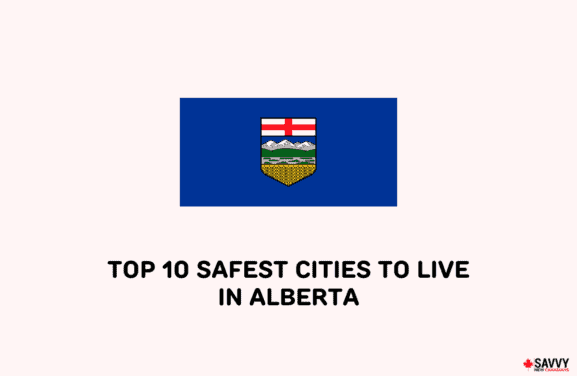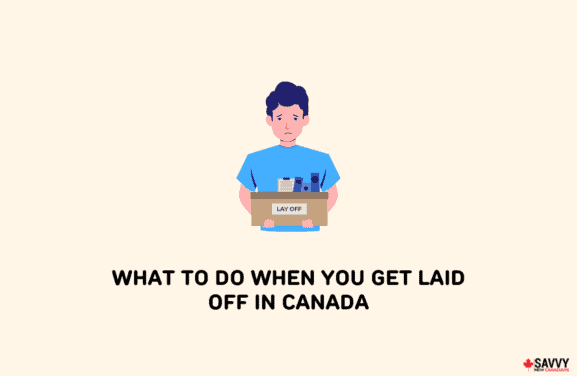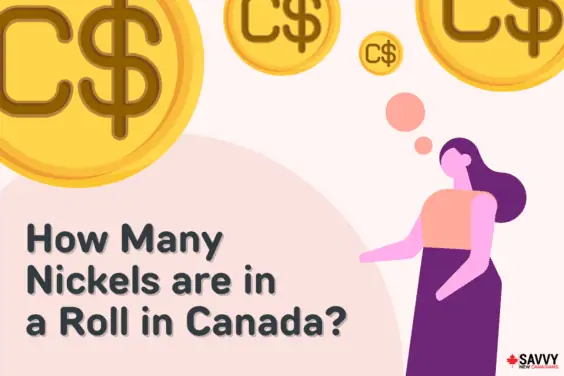Key Takeaways
- Student loans can be forgiven in Canada under specific circumstances, such as for doctors and nurses working in remote areas and graduates working in some in-demand occupations.
- Provinces with some form of student loan forgiveness program include BC, NB, QC, NS and PEI.
- Provincial Loan Forgiveness Programs don’t apply to Canada Student Loans and vice versa.
- Some loan forgiveness programs, like the one offered by Nova Scotia, are automatically applied to loan accounts after graduation.
Many Canadians rely on student loans to fund their education. As per Statistics Canada, the average Canadian graduate is burdened with over $27,000 in debt, turning student loans from lifesavers to significant financial strain.
Fortunately, federal and provincial governments offer Student Loan Forgiveness programs to provide financial relief to eligible borrowers.
This article will discuss what Student Loan Forgiveness means, how it works, and how you can leverage these programs to achieve a debt-free future.
What is Student Loan Forgiveness?
Student Loan Forgiveness refers to programs that reduce or completely relieve an individual’s student loan.
If you’re eligible for one of these programs, the federal or provincial government will be responsible for paying back a portion or the entirety of your entire loan balance.
Can Student Loans Be Forgiven in Canada?
Yes. Student loans can be forgiven in Canada under specific circumstances. Some programs aim to alleviate the financial burdens of individuals. Others serve as incentives for medical professionals working in under-served or remote communities.
Here’s how Student Loan Forgiveness in Canada generally works:
- Research and determine whether you’re eligible for a specific program.
- Gather the documents and paperwork that prove your eligibility.
- Fill up the Canadian Student Loan Forgiveness Form and apply for the program.
- Ensure you meet the program requirements.
- Submit documents that prove you’ve completed the program’s prerequisites.
- Receive your Loan Forgiveness.
The exact process, requirements, and extent of your Loan Forgiveness vary depending on the program you’re applying for.
Learn the specifics of each program in the sections that follow.
Student Loan Forgiveness Programs in Canada
Student Loan Forgiveness For Doctors And Nurses In Canada
Doctors and nurses employed in remote or under-served rural communities for an entire year are eligible for this Student Loan Forgiveness program.
To apply, you must practice as one of these medical professionals:
- Family doctor
- Registered nurse
- Registered psychiatric nurse
- Registered practical nurse
- Licensed practical nurse
- Nurse practitioner
- Family medicine resident
Moreover, your loan must be in good standing (without overdue payments or term violations). You must also have provided at least 400 hours of services in the under-served community.
Note: Loan Forgiveness only applies to outstanding Canada Student Loan balances. Loans converted to private loans or lines of credit aren’t eligible.
How Much You Could Receive
With this program, family doctors and residents can be forgiven up to $8,000 yearly for a maximum of five years. On the other hand, nurses can get $4,000 a year, with also a five-year limit.
Note: This program’s Loan Forgiveness applies to your outstanding Canada Student Loan principal balance at the end of your 12 months of service in a rural area.
Bankruptcy Forgiveness (Repayment Assistance Plan)
Individuals with financial difficulties are eligible for the RAP program.
Unlike other Loan Forgiveness, the RAP compares your household income to your family size to decide whether you require financial help.
This official page shows the program’s updated monthly gross family income thresholds. You can apply for Bankruptcy Forgiveness if your household earns less than the specified monthly income based on your family size.
How Much You Could Receive
While this Loan Forgiveness doesn’t directly pay a specific amount of your loan, it reduces your monthly payments to be more suitable for your household income.
In some cases, you might not need to repay your loans at all.
You can apply for this program as soon as you start your loan repayment period. Just remember that you must re-apply every six months to remain eligible.
Note: The RAP ensures borrowers can repay their loans within 15 years. For borrowers with disabilities, this program guarantees Canada Student Loan Forgiveness after ten years.
Provincial Student Loan Forgiveness Programs
The programs below only apply to the provincial portion of an individual’s government student loan.
BC Loan Forgiveness Program
Graduates working for a full year in specified in-demand occupations in BC can have their student loans forgiven.
The province’s Forgiveness Program applies to those working in British Columbia’s underserved communities in one of these professions:
- Nursing
- Midwifery
- Audiologist
- Physiotherapist
- Polysomnographer
- Respiratory Therapist
- Occupational therapist
- Physicians (including residents)
- Medical laboratory technologist
- Diagnostic medical sonographer
- Speech-language pathologist
You may also apply for this Loan Forgiveness if you’re working with children throughout BC as one of these professionals:
- Audiologist
- Physiotherapist
- School psychologist
- Technology educator
- Occupational therapist
- Speech-language pathologist
- Teachers of the deaf/hard of hearing or the visually impaired
Note: This Loan Forgiveness only applies to student loans that aren’t in bankruptcy, default, or delinquent.
How Much You Could Receive
The BC Loan Forgiveness program can forgive up to 20% of your student loan debt yearly for up to five years. Hence, your entire loan balance can be forgiven if you re-apply for the maximum duration.
The Loan Forgiveness is applied at the end of your year-long eligible service.
New Brunswick Interest Elimination
Borrowers in New Brunswick won’t be charged for their monthly student loan interest starting November 1, 2022, onwards. The government will shoulder the interest as a means to make education more affordable.
The advantage of this Loan Forgiveness is that borrowers won’t need to submit applications for the program. The Interest Elimination will automatically apply to every New Brunswick provincial government loan balance.
How Much You Could Save
Based on the current interest rates of the Bank of Canada, a borrower who needs to repay a $15,000 loan over ten years will save over $2,000 with this Interest Elimination program.
Note: Interest accrued before November 1, 2022, must still be paid.
Quebec Loan Remission Program
This program applies to Quebec residents who took loans under the province’s Loan and Bursaries program.
The eligibility requirement is straightforward. You must complete your studies within a prescribed period based on your program type. Then, within three years of program completion, submit your loan remission application.
Below’s a table you can reference to determine how long your program’s “prescribed period” is.
| Program Type | Prescribed period |
| Master’s degree (without a thesis) | 16 months |
| Master’s degree (with a thesis) | 20 months |
| 3-year undergraduate program | 24 months |
| College-level technical training | 27 months |
| 4-year undergraduate program | 32 months |
| Doctorate | 32 months |
Note: Students who have enrolled in another program and withdrawn are still eligible for this Loan Forgiveness. Only the full-time months of study determine whether you completed the program within the recommended period.
How Much You Could Receive
Once your application is approved, the Quebec Loan Remission Program forgives up to 15% of your total loan. The government considers this forgiven amount “taxable income,” so you must report it when filing your taxes.
Nova Scotia Student Loan Forgiveness Program
This Loan Forgiveness Program is available for Nova Scotia borrowers who graduated from either non-professional undergraduate or certificate and diploma programs.
The eligibility criteria for individuals with undergraduate degrees are as follows:
- Your entire degree should’ve been completed within eight years.
- It must be your first undergraduate degree eligible for Loan Forgiveness.
On the other hand, certificate and diploma holders must meet these requirements:
- Finishing your certificate or diploma within four years of starting it.
- It must be your first diploma or certificate eligible for Loan Forgiveness.
The best part about this program is that you won’t need to send an application.
The provincial government automatically reviews recent graduates’ Nova Scotia Student Loan accounts. Then, it sends a letter to each individual, including how much of their debt will be forgiven.
Note: On average, after your school provides your graduation information to the government, it takes 3-6 weeks to receive your Loan Forgiveness assessment.
How Much You Could Receive
For graduates of undergraduate programs:
You can receive five years of Loan Forgiveness for a maximum amount of $20,400.
For graduates of Nova Scotia certificate and diploma programs:
If you take a 39-week study period, you could receive up to $4,680 per year of study. For a 52-week study period, you could be forgiven up to $6,240 per year of study.
Note: If your Loan Forgiveness amount is more than what you still owe, the difference will be used to repay your Canada Student Loan if you have any. The remaining amount will then be mailed to you as a cheque.
PEI Debt Reduction Grant Program
Individuals with PEI Student Loans can apply to this program, provided they meet the following requirements:
- Earned a degree, diploma, or certificate within the last three years.
- Has lived on PEI for at least six months before the application date.
How Much You Could Receive
If you graduated before August 1, 2018, you could be forgiven up to $2,000 for each eligible school year you took.
However, you can receive up to $3,500 in Loan Forgiveness annually if your graduation is after the said date.
Note: The Debt Reduction Grant only covers the standard completion time for your program plus one additional year.
On average, degree programs usually take four years to complete, diploma programs take two years, and certificates can be earned in 1 year. So, check the table below to summarize how much you could receive, depending on your program.
| Program | Eligible Number of Years | Maximum Amount Of Loan Forgiveness (Based On When you Graduated) |
| Degree | 5 | $10,000 or $17,500 |
| Diploma | 3 | $6,000 or $10,500 |
| Certificate | 2 | $2,000 or $7,500 |
Canada Student Financial Assistance Program
Let’s briefly discuss the program that provides Canada-wide student loans.
The CSFA Program allows students from low or middle-income households to receive grants and financial assistance to support their studies. It’s also available for students with dependents or disabilities.
The amount you may receive from the CSFA program depends on several factors, including the following:
- Your annual family income.
- The length of your study program.
- Your province or territory of residence.
- Whether you study full-time or part-time.
- The number of your dependants (if applicable).
You can use this student aid estimator to calculate how much you can receive through the CSFA program.
Let’s move on to how you can reduce your monthly repayments for your Canada Student Loan after graduation.
Conclusion
Most graduates are eligible for at least one Loan Forgiveness Program. Take time to review the student assistance plans of your provincial government, along with the federal programs, to cut down your Student Loan repayment costs significantly.
FAQs
Student loans don’t automatically go away after seven years in Canada. However, if you declare bankruptcy at least seven years after you finish your full-time or part-time post-secondary studies, your loans will be eligible for discharge, along with your other debts.
Yes, you can ask for your student loans to be forgiven by following the requirements of the Loan Forgiveness Programs you’re eligible for.
Some student loans that aren’t eligible for forgiveness are older loans, loans in bad standing, and private student loans. Remember, though, that different Loan Forgiveness programs also have different eligibility criteria.
Applying to the Student Loan Forgiveness programs above is a legal way to eliminate student loans.
Related:



